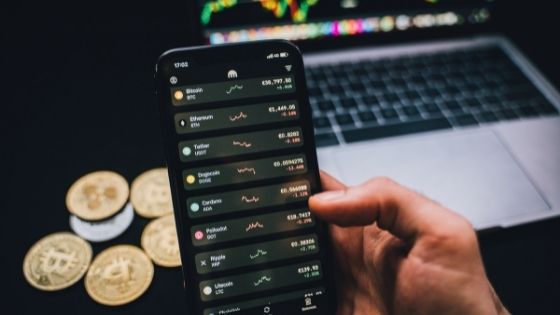Early this year, PayPal announced its decision to explore a stablecoin. If launched, the virtual currency will be referred to as the PayPal coin. This decision was announced sometime after one of the platform’s developers discovered that a stablecoin could exist within the application’s source code on an IOS device.


A PayPal Stablecoin?
Jose Fernandez da Ponte, Senior Vice President of Digital Assets at Paypal, disclosed that the company is yet to make a final decision on this topic. He further explained that if the company decides to go ahead with its proposed stablecoin, it will solicit the input of relevant regulating agencies. This would place it a step above Meta’s Diem stablecoin project, which failed majorly because the Meta team did not work closely with the legislature. The project was more or less doomed from the start due to this.
PayPal revealed that the progress of the stablecoin project would be prioritized. And all steps will be taken to avoid the wrath of lawmakers in the chambers. If the e-commerce payment company succeeds in launching the PayPal stablecoin, rest assured that the potential impact will be limitless. Although some critics claim that it would be more of the same thing in the crypto industry. A PayPal stablecoin is a much-needed token that might improve the growth of the crypto e-commerce sector.
The Impact of PayPal Stablecoin on Regular Payments
The centralized financial industry is slowly leaning toward the cryptocurrency space. PayPal is a respected traditional financial corporation whose interest in the crypto industry could result in more people and businesses joining. With over 350 million active users in North America and Europe, as well as other regions in the world, PayPal could efficiently introduce the concept of cryptocurrencies and stablecoins to thousands of individuals.
Presently, users can use cryptos like BTC, Ether (ETH), Bitcoin Cash (BCH), and Litecoin (LTC) to make transactions on Paypal’s platform, provided the user is based in the United States or the United Kingdom. PayPal understands that there’s no future for e-commerce payments without these crypto assets. Another reason why the company is trying to stay ahead is by providing its unique stable coin, which would be used to enable payments within and outside the platform. The total number of users who have completed payments with crypto assets has not been revealed by the company.
The popular stable coins at the moment are USDT and USDC. However, there’s a chance the PayPal coin could give both coins a run for their “market cap.” The earlier brands begin to adopt stablecoins and the crypto space, the sooner everyone can begin to take advantage of the many opportunities in the Defi ecosystem.
Exploring Blockchain Technology Further
When tech giants or leading e-commerce corporations have an interest in cryptocurrencies, they have the potential to influence other companies and conventional banking institutions to push further into the blockchain and crypto space. Veem’s CEO, Marwan Forzley, said that stablecoins would inevitably be a significant part of global payment systems in the coming years. Forzley added that small-scale businesses stand to gain a lot from the adoption of these payment methods.
What’s In It For PayPal?
Having a stablecoin would help the company’s bottom line at the end of each quarter. In the third quarter of 2021, Investopedia reported that Pay Pal had spent close to $3 billion on transaction-related expenses alone in four months. Issuing a stablecoin and having it on a non-complex and easy-to-navigate blockchain network like Solana could erase millions from the company’s quarterly transaction expenses. As of the time, this is being written, Solana (SOL) has not been approved for transactions on the PayPal platform.
The firm is yet to release comprehensive details about the proposed stable coin and the blockchain network it would be deployed on.
PayPal stands to gain a lot from integrating its current business model into a blockchain network. Not only would this let people in on the wonders of digital assets, but it would also reassure them that their assets and purchased goods or services are secure.
As expected, there would be several challenges once this project was implemented. However, the bulk of this would be resolved if PayPal learns from the mistakes made by the Diem team. If and when the project kickstarts, relevant policymakers should be kept on board to ensure the board aligns with its scope of business.
















